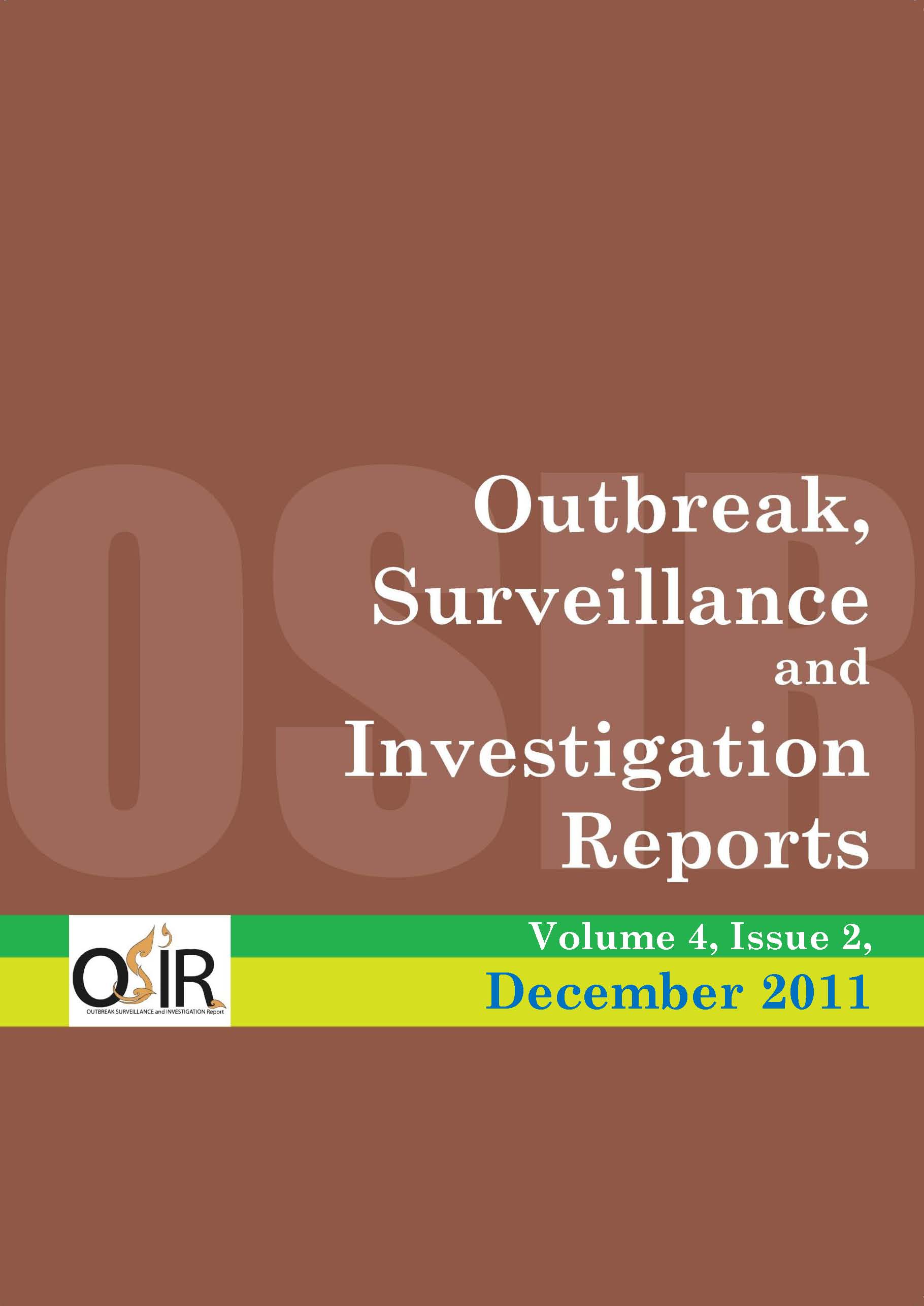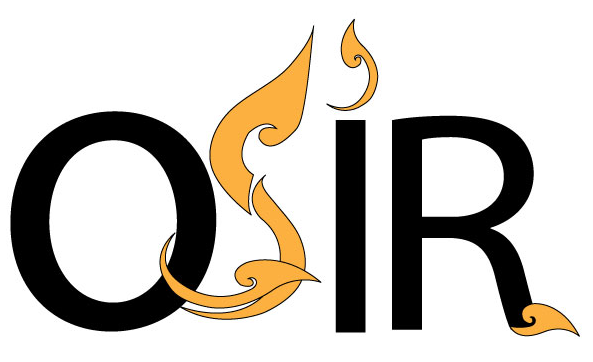Dengue Hemorrhagic Fever in West Sumatera, Indonesia, 2009
DOI:
https://doi.org/10.59096/osir.v4i2.263353Keywords:
dengue, fever, risk factor, IndonesiaAbstract
In December 2009, 23 people were diagnosed with dengue fever in a village in Western Sumatera, Indonesia. This was unusual because in Indonesia, dengue fever usually occurs in the rainy season and December is in the dry season; dengue usually occurs in low elevations and these villages are in the highlands; and the area was dengue free for the past five years. We conducted a case-control study to determine the risk factors, with cases matched by age, village and gender. Eighteen cases (78.3%) were hospitalized and there were deaths. Most cases lived in Tigo Balai and Matur Hilir Villages, and had an incidence of 2.1/1,000 population. Fever (≥38°C), nausea, vomiting and intense headache were the most common signs and symptoms. All cases had thrombocytopenia and a 20% drop in hematocrit. The strongest risk factor was no activity to eliminate mosquito breeding sites, with adjusted OR 4.8, 95% CI 3.3-7.8 and p-value 0.04.
References
Rampengan TH. Tropical infectious diseases in children. 2nd ed. Jakarta: EGC, 2008.
The Republic of Indonesia. Ministry of Health. Malaria epidemiology report. Ditjen PPM-PLP. Communicable infectious diseases. Zoonosis. 2001; 78: 43-54.
The Republic of Indonesia. Ministry of Health Operational research study of communicable disease eradication. Jakarta. 2004.
Agam District Health Office. Annual report of Agam District. Lubuk Basung, West Sumatera, Indonesia. 2009.
Murti B. Epidemiologic research principles and methods. 2nd ed. Yogyakarta: Gajah Mada University Press, 2003.
Mardihusodo SJ, Tjokrosonto S, Atmosoedjono S. Determination of status vector mosquitoes Anopheles balabacencis (Diptera, Culicidae) District of Kokap. Journal of Health Science. 2000; 13: 89-98.
Lemeshow S, Hoswer DW, Klar J, Lwanga SK. Adequacy of sample size in health studies. Yogyakarta: Gajah Mada University Press, 1997. Indonesian.
Hasyim H. Management environment disease (Region-Based). Journal of Health Services Management. 2008; 11: 72-76.
Budiman C, editor. Health Reseach Methodology. Jakarta: EGC, 2007.
Matur Sub-district. Annual report of Matur Health Center, Matur Sub-district, Agam District, West Sumatera, Indonesia. 2009.
Snow RW, Craig MH, Dechman U, Lesueur D, Parasitol. In: Vagapandu S, Sandeep S, Meenakshi J, Savita S, Prati DS, Chaman LK, Rahul J. 8-Quinolinalinines conjugated with amino acid are exhibiting potent blood schizontocidal activities. Bioorganic and Medicinal Chemistry. 2004; 12: 239-247.
Soedarto. Infectious diseases in Indonesia, Jakarta: Widya Medika, 1996.
Setiati TE, Wagenaar JFP, de Kruif MD, Mairuhu ATA, van Gorp EC, Soemantri A. Changing epidemiology of Dengue Hemorrhagic Fever in Indonesia. Dengue Bulletin. 2006; 30: 1–14.
Sumarmo S. Infectious and tropical diseases. Faculty of Medicine. Jakarta. 2002.
Brown HW. Basic clinical parasitology. Jakarta: Gramedia, 1992.
Downloads
Published
How to Cite
Issue
Section
License
Copyright (c) 2023 Outbreak, Surveillance, Investigation & Response (OSIR) Journal

This work is licensed under a Creative Commons Attribution-NonCommercial-NoDerivatives 4.0 International License.









